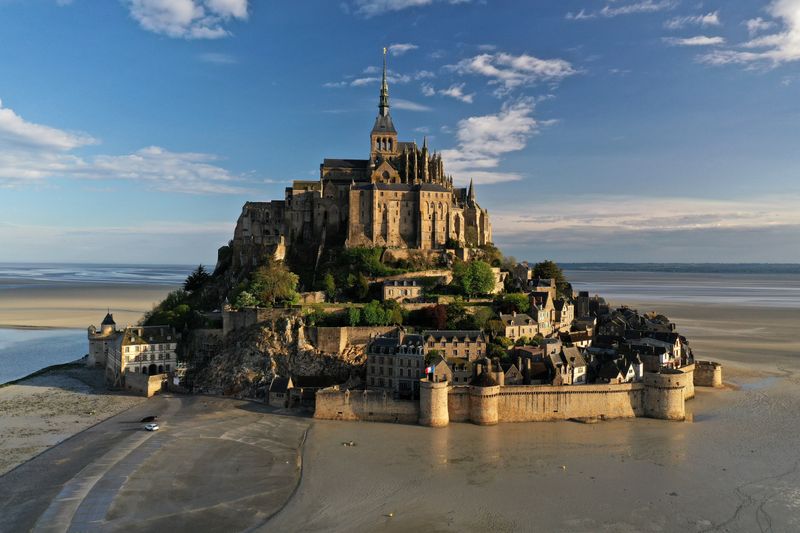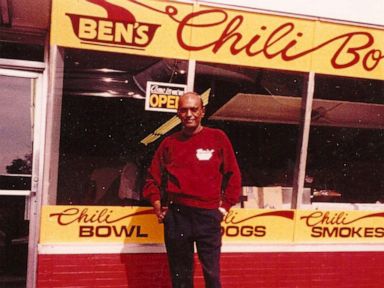
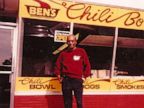

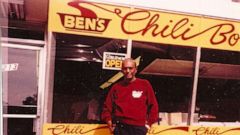
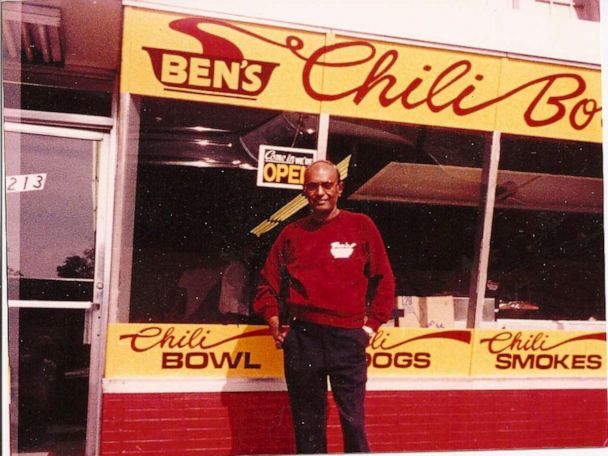
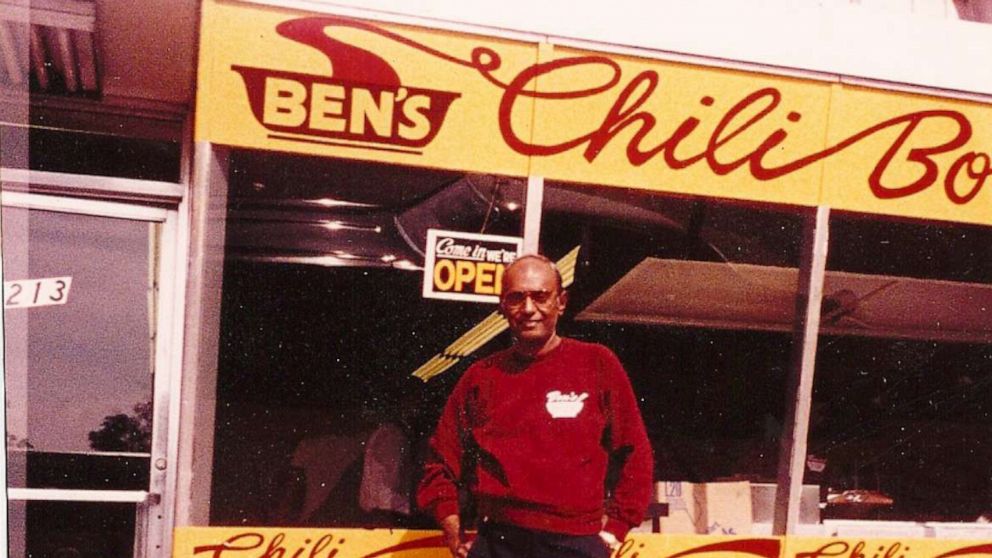
Sage Ali’s family has been through a lot, seen a lot. His parents, Ben and Virginia, lived through segregation and the strictures of Jim Crow. Much of downtown Washington, D.C. was off-limits to them.
The Alis started Ben’s Chili Bowl, a tiny diner that would later serve presidents and celebrities. The restaurant was one of the few to survive the 1968 riots after Martin Luther King, Jr. was assassinated and white flight to the suburbs brought the scourge of heroin and crack cocaine to their doorstep along with the rise in crime that would see the departure of most businesses.
But not the Alis. They stayed and persevered, expanded even — to seven locations.
Yet the coronavirus has brought the storied business to its knees.
And to add insult to injury, the family — desperate for funding to keep their business afloat, watching 80 percent or more of their business evaporate — was told Thursday that its application for a loan through the federal Paycheck Protection Program (PPP) was stuck in limbo, frozen while Republicans and Democrats fought over how best to spend taxpayer dollars on other rescue programs.
“I’ll be honest with you, it’s a little bit emotional. To tell Mom we didn’t get that loan, it was hard, seeing her face,” Sage Ali told ABC News in an interview, his voice halting. “Mom is 86 — a very young, very sharp 86. She just stopped doing the books maybe a year ago, but she’s still into everything. Mom understands very well the financial situation right now, and she knew how critical that funding was. So for me to get off the phone and walk into that other room and say, ‘Guys, it didn’t go in,’ that was a very tough moment for me.
‘We haven’t seen anything like this’
Sage Ali, responsible for the banking side of the business, applied for a PPP loan at his bank, Citi First of DC, a family-owned business, a factor important to the Alis.
“It took way too long to process. It seemed like they kept coming for more information over and over,” Sage’s wife, Vida, said. “We were following the guidelines — go to one bank at a time — but we got left out. I was shocked when the money was out.”
“We felt like they did their best,” Sage said of the bank. “But this is unprecedented. This is a whole different level. The ‘68 riots were crazy, but we haven’t seen anything like this.”
The restaurant, which is down to one location — its landmark U Street diner — is being run by a skeleton crew, attempting to survive on its takeout business, which is just barely covering overhead, according to Sage, just making enough to cover payroll.
“The second it opens up again, we should be going right in,” Sage said of the PPP program, meant to help businesses hire back their employees for two months. But for the Alis, there are many questions about how the path to reopening will work.
“You want to be confident. You want to be hopeful, but there are so many unknown factors. If we keep U Street,” Vida said, stopping before adding defiantly, “U Street could never close. We’re telling Mom, We can’t close that location after everything you did to survive. Even if it’s down to five people. Whatever it takes.”
A neighborhood mainstay
In 1958, Sage’s parents, Ben and Virginia Ali, opened Ben’s Chili Bowl in what was known then as Black Broadway — the thriving cultural and economic hub of the African American community, a world that had produced such legendary figures as jazz great Duke Ellington and Madame Lillian Evanti, the first black international opera singer, as well as a number of leading intellectuals.
The Chili Bowl became a neighborhood mainstay, renowned for its burgers and famous half-smokes with spicy chili sauce, the latter now a D.C. signature dish.
What to know about Coronavirus:
- How it started and how to protect yourself: Coronavirus explained
- What to do if you have symptoms: Coronavirus symptoms
- Tracking the spread in the US and Worldwide: Coronavirus map
Virginia recalls folks in town for the March on Washington dining in their U Street diner.
In April 1968, the Reverend Dr. Martin Luther King, Jr. was assassinated, and the riots in Washington that followed were devastating for the city, along with drugs and white flight to the suburbs. Still, Ben and Virginia Ali were determined to keep their business on U Street up and running.
“I was eight years old when we got the news that Martin Luther King was killed. I was in the car with my dad. We were allowed to stay open to serve first responders, and I remember we really feared for his life going in there. I remember as an eight-year-old kid seeing an Army tank on the road,” recounted Sage.
In 2005, after Ben Ali passed away, Sage and Vida Ali returned from California to help their mother and two brothers, Kamal and Nizam, run the business. Virginia Ali was determined to soldier on, and the business thrived, with scores of tourists flooding into the tiny restaurant to take in more than just the food. President Obama showed up on more than one occasion. Celebrities frequented the establishment.
‘A safe zone’
“The Chili Bowl was always the gathering place for the community and for folks all over the world. Mom was always there welcoming everyone in,” recalled Sage. “And the diversity has always been there, even when it wasn’t happening outside the door. People have told me, coming off the street, you might have felt unsafe, but you walked into the Chili Bowl and they were safe. It was a safe zone where they could talk about anything. It was like sitting around with family. You can argue, but you’re still family.”
But Virginia Ali, now 86 years old, was forced to stop going to her beloved restaurant in February when it was clear that the coronavirus was an existential threat.
“She stopped going when the COVID 19 hit. Mom’s such a social person. She loves people. Embraces everyone as family. So for her, it was just almost unthinkable. Now, she’s cooped up in a house by herself,” said Sage. “She would love nothing more than to go down there right now. Mom would put on a mask and go down there right now and be there all day. In fact, she tried, but we all had to tell her she could not be there. She wasn’t happy about that.”
Even if the family gets its PPP loan, like many restaurant owners they will be grateful for the help but they are certain it will not be enough.
“We’ve purchased food, paper products, and to be honest, we’re not able to pay now. We have relationships with vendors so they know we’re good for it, but they need their money, too,” Sage said. “We all have lots of expenses, and when your revenue drops at such a high level, that’s a big deal.”
PPP gives small businesses a loan based on annual payroll expenses and demands, with few exceptions, that owners hire back employees for two months in order for the loan to be forgiven. The question for restaurants is, What happens when customers, who might still be afraid to return en masse or might still be under social distancing guidelines, fail to return in large numbers?
One grassroots industry group, formed to lobby for its own interests in the wake of the pandemic, has been pushing Congress to extend the originating date of the loan to accommodate the uncertainty of the restaurant business right now. The Independent Restaurant Coalition also wants to extend the expiration date of the Paycheck Protection Program, now set for June 30, 2020, and it is pushing for a separate economic rescue package from Congress in any future stimulus language with one member estimating the value at about $1 trillion.
‘We’re not so freaked out as we are focused’
But for the Alis, it’s all just a juggling act for now while it waits for lawmakers to strike a deal.
“It’s really, really tough. This may give us relief for two months, but then what?” Vida asked. “You have every other bill, mortgage, rent — and what do we do about vendors? No one is saying they’re going to relieve us of that. They’re saying maybe no late fees.”
“Everyone is talking about bringing our customers back, but the fact that they are afraid to come in and understandably so, there are so many challenges,” said Sage. “Restaurants don’t even know, with the social distancing, what will that mean for a sit-down restaurant? There are so many things that we just don’t know.”
“I’m not going to say it doesn’t’ work, because any help we can get will help. But we need more,” added Sage.
But then Sage Ali’s bright-eyed optimism kicked in, almost impossibly so, defying the times.
“We pray,” Sage said almost cheerfully. “We’re people of faith. We’ve been here 61 years. We’ve always been taught, ‘We do the right thing, God will protect us.’ We do feel like somehow we’ll be fine. We’re not so freaked out as we are focused.”
“Being a minority-owned and woman-owned business, we give hope to people,” he continued. “We give faith to people. We give confidence and comfort to people,” Sage said in an energetic, almost preacherlike lilt. “We’ve got four generations of people coming in here. So for us, if we run out of money, we cannot close. We really feel a sense of responsibility to the community. It’s not just about finances, it’s about service to the community.”
“It’s hard for everyone,” Sage added. “The Chili Bowl is kind of a microcosm of the macro. We are one big human family. Regardless of your race, your culture, your religion, your background whatever, if we don’t work together, think together, pull together, we can’t get through this.”

